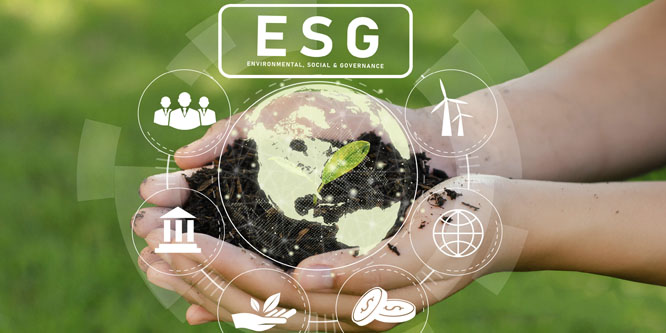
Source: Getty Images
April 27, 2022
Is human bias frustrating sustainability progress?
An Oracle study finds 93 percent of business leaders would trust a bot over a human to make decisions on environmental, social, and governance (ESG) programs as 96 percent agreed that human bias and emotion often distract from related end goals.
The business leaders surveyed believe bots are better at:
- Collecting different types of data without error (43 percent);
- Making rational, unbiased decisions (42 percent);
- Predicting future outcomes based on metrics/past performance (41 percent).
People were found to still be essential to the success of sustainability and social initiatives and better than bots at implementing changes based on feedback from stakeholders (48 percent); educating others on information needed to make decisions (46 percent); and making context-informed strategic decisions (42 percent).
The “No Planet B” study, done in partnership with CIO Advisor Pamela Rucker, reached more than 11,000 consumers and business leaders in 15 countries.
The study found 92 percent of business leaders believe sustainability and ESG programs are critical to the success of their organizations, including strengthening the brand, increasing productivity and attracting new customers. Almost all (91 percent) are facing major obstacles implementing sustainability and ESG initiatives with the top three being obtaining metrics from partners and third parties, a lack of data, and time-consuming manual reporting processes.
Several other surveys timed to Earth Day, April 22, highlighted sustainability challenges.
A survey by Boston Consulting Group (BCG) of 37 major retailers around the world, found more than half had still not set any sustainability key performance indicators (KPIs) across their businesses to measure progress, and less than 20 percent were on track to cut Scope 3 emissions, which include those of suppliers, by enough to meet targets for limiting the rise in global temperature under the Paris Agreement.
A survey of nearly 1,500 executives globally commissioned by Google Cloud found 87 percent agreeing that if business leaders can be more honest about the issues they face with becoming more environmentally sustainable, they can make meaningful progress, 82 percent wished they had more room to prioritize sustainability, and 58 percent agreed that green hypocrisy exists and their organization has overstated their sustainability efforts.
- 61 percent of People Believe Bots Will Succeed Where Humans Have Failed with Corporate Sustainability – Oracle
- Report: What it will take for CEOs to fund a sustainable transformation – Google Cloud
- Less Than 20% of Retailers Are on Track to Meet Their Sustainability Targets, but There Are Reasons for Optimism, says BCG Study in Partnership with World Retail Congress – Boston Consulting Group (BCG)/PRNewswire
Discussion Questions
DISCUSSION QUESTIONS: Are human biases and emotions holding back progress within organizations around sustainability and ESG initiatives? What aspects of such programs should be driven by AI (artificial intelligence) and bots and what role should people play?
Poll
BrainTrust
DeAnn Campbell
Head of Retail Insights, AAG Consulting Group
Michael La Kier
Vice President, Brand Development - IGA, Inc.
Doug Garnett
President, Protonik
Recent Discussions







Human biases and emotions influence behavior which drives progress (or lack thereof), so yes, biases are holding back sustainability initiatives. However it’s encouraging to see that awareness and action around sustainability are gaining momentum. There is wide consensus around the importance of sustainability, the challenge that remains is in taking meaningful action. And while AI and technology can play a role in promoting and enabling initiatives, ultimately humans are still the decision makers.
When it comes to sustainability and ESG there is a gap between intention and action. Consumer behavior is not only influenced by long-term rational concerns, but also by short-term emotional ones. Parts of our brains actually think that the tasks we’re putting off — and the accompanying negative feelings that await us on the other side — are somebody else’s problem. So, if we can automate things, we may be better off.
It isn’t human biases holding us back so much as the human drive to hold on to the familiar. Sticking with what we know is almost programmed into our DNA. Giving up the things we have become accustomed to in exchange for more sustainable options is something we know in our heads we must do, but our lizard brains are going to hold us back as long as possible.
There is no question that human bias, namely the inability to accurately listen to data-driven insights, is a significant inhibitor to sustainability (and a host of other things that threaten our future and that of our kids). The cause of that bias has all kinds of factors and many of those are amplified in today’s climate (pun not intended but appropriate!).
As Peter Drucker’s mantra goes: “You can’t improve what you don’t measure.” But my eyes are still spinning from the 18 different numbers in this article. It’s like the manic measurement that’s going on in baseball now, from exit velocity to the probability down to five decimals that the center fielder would make that catch (which, obviously, he just did). And maybe that’s the problem. ESG initiatives don’t always lend themselves to measurement. They have more to do with genuine commitment to certain values. If you’ve ever watched 2001: A Space Odyssey, you know where too much trust in automation can lead — HAL (what is the next letter after each letter in HAL?) … “I can’t do that Dave.”
The mythology of human bias at the CEO level. Too often when a CEO says “biased” what they’re referring to is someone telling them reality they’d prefer to ignore.
Human “bias” is also human strength – that ability to perceive which goes far beyond what a bot could ever achieve.
This was depressing to read as it accurately reflects erroneous thinking in many companies who would prefer to get rid of people (their only possible source of competitive advantage) in preference for mediocrity.
AI and bots are only as neutral as their programming allows, so to blindly expect them to be less biased is probably a mistake. Climate change and sustainability are big, complex problems, with many proposed solutions and lots of room for error and greenwashing. Knowledge doesn’t change behavior; we need a single, transparent operational practice for business to rally around in order to move toward any kind of real solution.
No, what’s holding back progress is that the initiatives would actually make changes that people don’t really want to make. The painless, costless change we see in those op-ed pieces is always wonderful, the reality is usually very different.